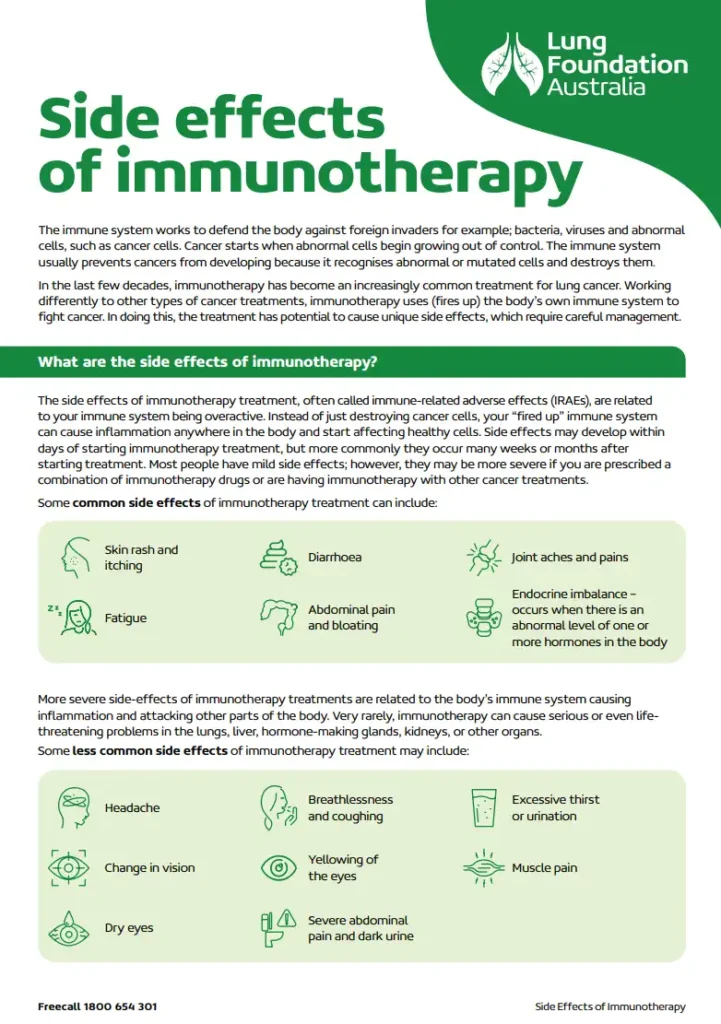Immunotherapy is a type of cancer treatment that works by stimulating the body’s immune system to recognise and attack cancer cells. It has become an increasingly common and effective option for treating lung cancer, offering hope to many patients. However, unlike traditional treatments, immunotherapy can cause unique side effects known as immune-related adverse effects (IRAEs). These occur when the immune system becomes overactive and mistakenly targets healthy tissues, leading to inflammation in various parts of the body.
Side effects may develop at any time—days, weeks, or even months after starting treatment. While many are mild and manageable, some can be more serious, especially when immunotherapy is combined with other treatments like chemotherapy. Common IRAEs include fatigue, skin rash, itching, joint and muscle pain, diarrhoea, abdominal discomfort, and hormonal imbalances affecting glands such as the thyroid or adrenal glands. More concerning symptoms may include yellowing of the eyes or skin (jaundice), dark urine, severe abdominal pain, excessive thirst or urination, dry eyes, and changes in vision.
In rare cases, serious inflammation can affect vital organs such as the lungs (pneumonitis), liver (hepatitis), kidneys (nephritis), heart (myocarditis), or hormone-producing glands, requiring urgent medical attention.
Before starting immunotherapy, patients should discuss their full medical history with their oncologist, particularly if they have autoimmune conditions like lupus, Crohn’s disease, or rheumatoid arthritis, which may be exacerbated by treatment. Early recognition and reporting of symptoms are essential. Prompt intervention—such as medications or pausing treatment—can prevent complications and support recovery. In some cases, immunotherapy may be permanently discontinued, although its effects may continue to help fight cancer.
Patients are encouraged to maintain open communication with their healthcare team and report any new or worsening symptoms immediately. Lung Foundation Australia offers valuable resources and support services to help patients manage treatment and side effects effectively.
Was this page helpful?
Good job! Please give your positive feedback
How could we improve this post? Please Help us.
